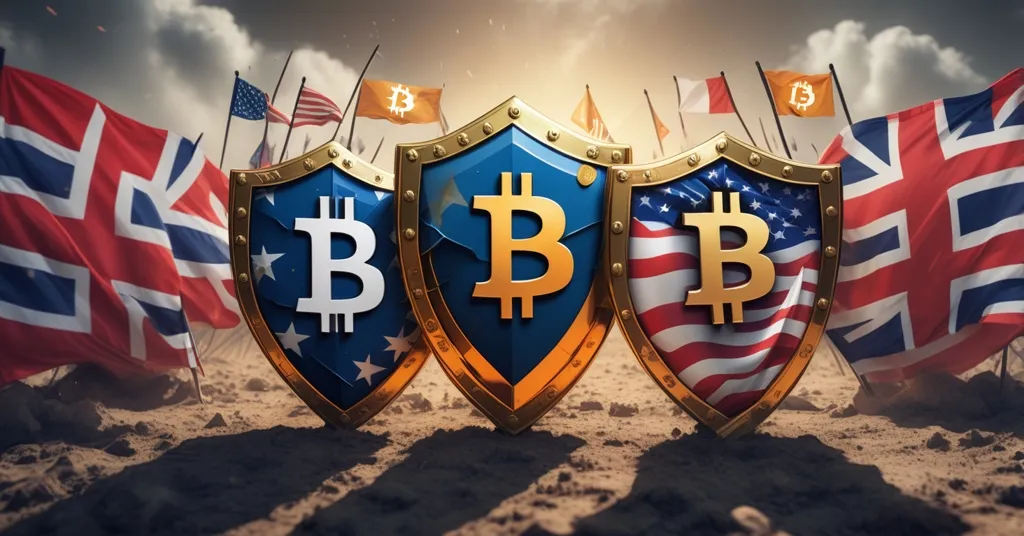Russian Lawmaker Predicts Bitcoin Surge Due to India-Pakistan Tensions

Top Russian Lawmaker: India-Pakistan Tensions Will Drive up Bitcoin Prices
Anatoly Aksakov, a prominent Russian lawmaker and Chairman of the State Duma’s Committee on the Financial Markets, has predicted that escalating tensions between India and Pakistan will lead to a surge in Bitcoin prices.
- India-Pakistan tensions to boost Bitcoin prices
- Bitcoin used in international weapon transactions
- Geopolitical instability drives safe haven investments
- US events most impactful on Bitcoin prices
- Russia exploring cryptocurrencies and stablecoins
Anatoly Aksakov’s prediction that geopolitical tensions between India and Pakistan could send Bitcoin prices soaring stems from his belief that such crises drive investors towards safe haven assets. Aksakov, a key figure in Russian financial policy, explains, “As a rule, such tense political situations work in favor of various investment instruments. These include Bitcoin and gold. Especially as Bitcoin is beginning to be used to pay for various weapons supply programs.” This statement, reported by the Russian Parliamentary Gazette, underscores Bitcoin’s growing role in international financial transactions, including those of a more shadowy nature.
While Aksakov acknowledges the significant influence of the US on Bitcoin prices, given the high concentration of Bitcoin owners there, he remains confident that the India-Pakistan conflict will not affect the Russian ruble. “Events in America still have the greatest impact on Bitcoin prices,” he notes, emphasizing the global dynamics at play.
Simultaneously, Russia is actively exploring the use of cryptocurrencies and stablecoins. In September 2024, the country began examining crypto payments for “dual-use goods,” and state-owned bank Promsvyazbank launched the A7 platform for cross-border settlements. A7 operators are now promoting the adoption of RUB-pegged stablecoins for international payments, signaling Russia’s strategic move towards integrating digital currencies into its financial system.
Stablecoins, digital currencies pegged to a stable asset like the Russian ruble (RUB), are being explored as a means to facilitate smoother international transactions. This move aligns with Russia’s broader interest in cryptocurrencies as tools for financial sovereignty and security during geopolitical instability.
However, the use of Bitcoin in potentially illicit activities, such as international weapon transactions, adds a layer of complexity and risk. While Bitcoin’s decentralized nature offers unparalleled freedom and privacy, it also poses significant challenges for regulation and oversight. As champions of decentralization and disruption, we must also advocate for robust frameworks to manage these risks effectively.
As strong Bitcoin supporters, we recognize the potential for BTC to lead the financial revolution. Yet, we also understand that altcoins and other blockchains, like Ethereum, play crucial roles in filling niches that Bitcoin might not serve as effectively. These diverse elements contribute to a vibrant and dynamic crypto ecosystem, each serving unique purposes in the broader financial landscape.
The concept of effective accelerationism (e/acc) aligns with these developments, promoting the rapid advancement of technology to disrupt the status quo. This approach encourages the exploration of new financial systems and technologies, even as we navigate the challenges they present.
So, what does this mean for the future of Bitcoin and the broader crypto market?
- Will escalating tensions between India and Pakistan drive up Bitcoin prices?
Yes, according to Anatoly Aksakov, who believes that such geopolitical instability will lead investors to pour money into safe haven assets like Bitcoin.
- Is Bitcoin used in international weapon transactions?
Aksakov suggests that Bitcoin is beginning to be used as a payment tool in international weapon transactions.
- What impact do events in the US have on Bitcoin prices?
Aksakov states that events in the US have the greatest impact on Bitcoin prices due to the country having the largest number of Bitcoin owners.
- Will the India-Pakistan conflict affect the Russian ruble?
No, according to Aksakov, the Russian ruble’s value depends on internal economic conditions and would not be affected by the India-Pakistan conflict.
- Is Russia exploring the use of cryptocurrencies and stablecoins?
Yes, Russia is actively exploring the use of cryptocurrencies and stablecoins, including launching focus groups for crypto payments and promoting RUB-pegged stablecoin adoption for international payments.
In the complex interplay of geopolitics and digital currencies, Aksakov’s insights provide a critical lens into how Bitcoin and other cryptocurrencies are shaping the future of finance. As we navigate this landscape, we must remain vigilant to both the opportunities and the pitfalls, always striving for a balanced and informed perspective.



